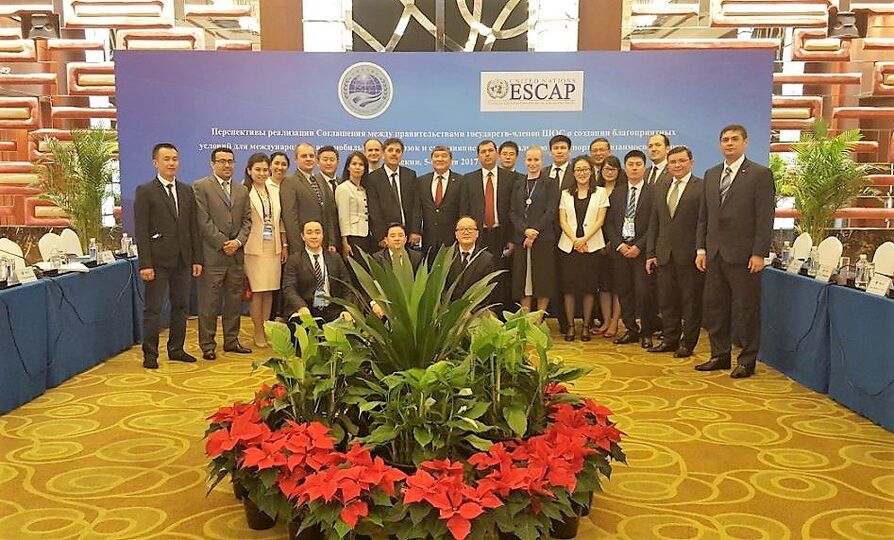The round table discussion on the prospects of implementing the Agreement on Facilitation of International Road Transport signed by the governments of the SCO member states and its influence on interconnected regional transport ended in Beijing on 6 July 2017. It was organised by the SCO Secretariat and the UNESCAP.
The event was attended by about 50 representatives of the SCO member states' ministries and transport agencies, research institutes and associations of road transport carriers, as well as high-ranking officials of diplomatic missions of SCO countries, Belarus and Mongolia in China.
The participants listened to 10 reports and speeches by authoritative experts on different aspects of international motor transport development between the SCO member countries, the construction and reconstruction of transport networks and the initiatives set forth and carried out in the SCO space.
SCO Secretary-General Rashid Alimov delivered a report during the round table discussion. He emphasised that "motor transport is vital for the countries without access to the sea, especially Central Asian states that are located far away from marine trade routes." He noted that "the Agreement opens up vast opportunities not only for the construction of new international motor roads but also for the upgrading of existing ones, thereby helping its signatories expand the entire range of trade and economic ties, increase trade, attract investment and establish a modern system of transport routes in the SCO space."
"The Agreement is the SCO's practical contribution to the development and implementation of the Silk Road Economic Belt project. The routes envisaged by the Agreement practically coincide with the main routes of the Great Silk Road: northern — via Kazakhstan and Russia; central — via Central Asia; southern — via India, Afghanistan, Pakistan, Iran and Turkey. All of these countries are represented in the SCO," he said.
During the event experts discussed in detail many urgent issues linked with the preparations for the practical implementation of the Agreement and use of motor roads, as well as problems and prospects of further cooperation in this area.
The delegates were shown a documentary about regional and international motor roads, bridges and other infrastructure under construction as part of China's One Belt, One Road initiative.
The round table discussion demonstrated growing interest of the SCO member states and adjacent countries in deepening comprehensive multilateral cooperation in transport, communications in general and motor service in particular, with due account of the modern trends in the development of the world economy and globalisation.
UNESCAP is the largest of the five UN regional commissions. Its activities are aimed at resolving economic and social issues of the Asian-Pacific Region. It has been a SCO partner since 2008.
The Agreement on Facilitation of International Road Transport was signed by the governments of the SCO member states at the meeting of the SCO Heads of State on 12 September 2014 in Dushanbe and entered into force on 20 January 2017.
The joint commission on facilitation of international road transport consisting of representatives of relevant agencies of SCO member states is a mechanism for coordinating efforts to consistently implement the Agreement.
